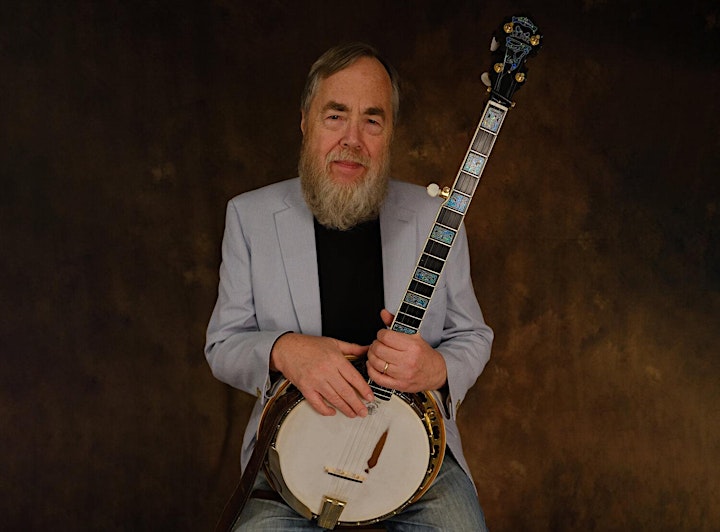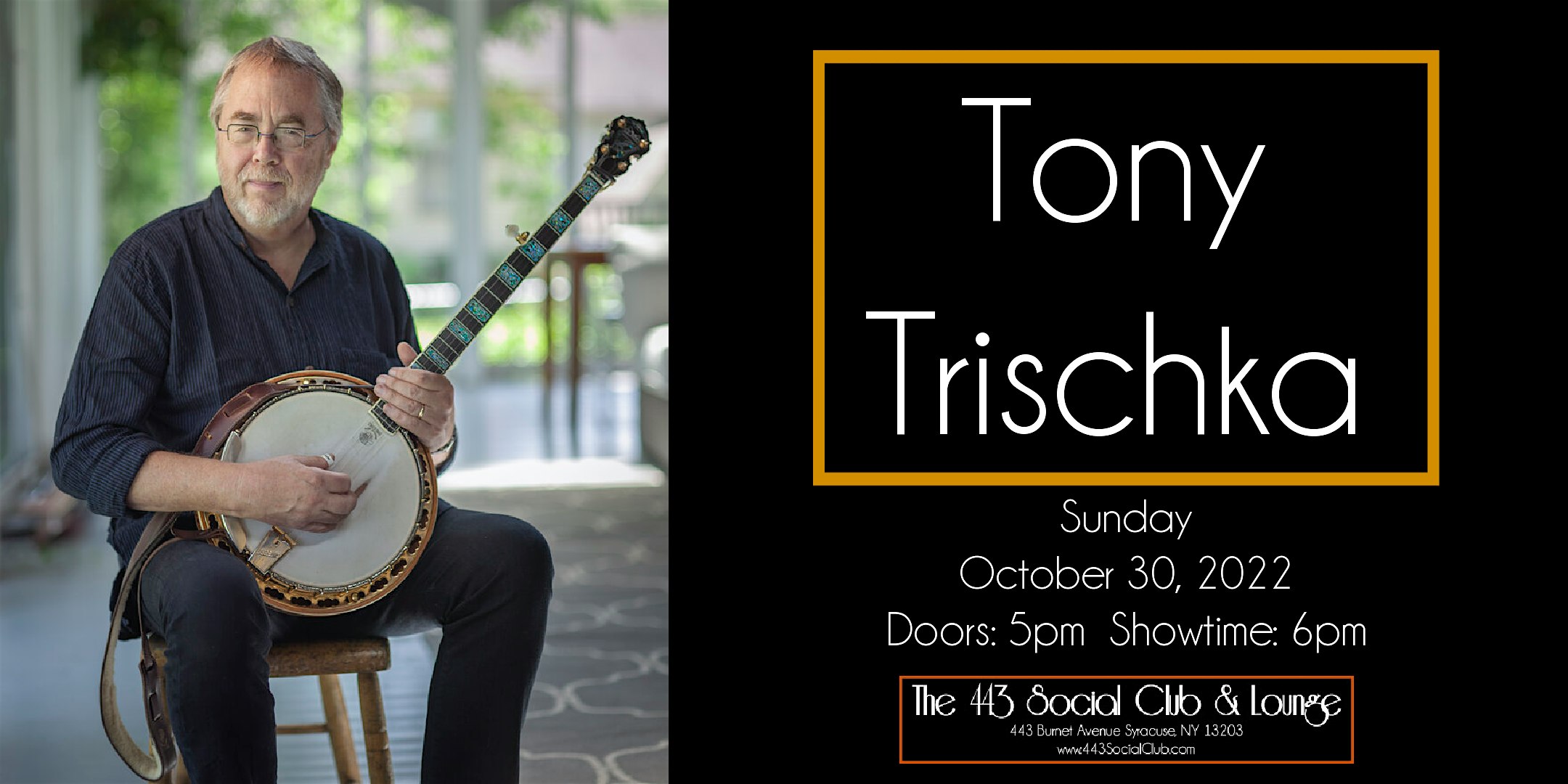Description
“Urban bluegrass whiz.” — Time Magazine
“The great banjo liberationist” — NPR
”(Trischka) is known as the father of modern Bluegrass.” — The New York Times
”Father of banjo fusion.” — The Wall Street Journal
Tony was born in Syracuse, N.Y., in 1949, and raised in a home filled with music. There were Broadway scores and a sweeping range of classical music, from Stravinsky to Beethoven. (The first thing Trischka learned to play on the banjo, in fact, was the Ninth Symphony.) The wide-open American vistas of Aaron Copland had an especially potent spiritual and visceral impact on him, as did the folk music his left-leaning father held dear. The Almanac Singers, the solo work of its founding members Woody Guthrie and Pete Seeger, and Lead Belly’s children’s LP were in constant rotation.
For his 1993 release, World Turning, Trischka crafted a wildly ambitious love letter to the banjo and its mighty journey throughout America’s cultural firmament. Trischka’s reputation and goodwill allowed him to retain the services of champion company, including Grisman, Parks, the Violent Femmes, Alison Krauss, R.E.M.’s Peter Buck and Bill Berry, and even beat icon William Burroughs. That project became an essential source of inspiration for Marc Fields’ comprehensive 2011 documentary, Give Me the Banjo, which Steve Martin narrated and for which Trischka acted as musical director and co-producer. (Musical direction is yet another of Trischka’s gifts, and he’s helmed ensembles for Broadway and off-Broadway productions as well as for New York City’s “Shakespeare in the Park.”) With frequent airings on PBS stations across the country, Give Me the Banjo was one more opportunity for Trischka to advocate on behalf of his chosen instrument.
He’s raised the banjo’s profile in many other ways as well. Through his theme song for Books on the Air and performances on A Prairie Home Companion, Mountain Stage, From Our Front Porch and other programs, he’s been a frequent presence on NPR. His work with his pal Steve Martin has helped the banjo gain a wider audience and deeper understanding. Trischka’s Grammy-nominated album Double Banjo Bluegrass Spectacular, released in 2007, and Great Big World, from 2014, feature Martin within a mix of veterans and up-and-coming luminaries. He produced Martin’s Grammy-nominated Rounder album from 2011, Rare Bird Alert, which touts performances by the Steep Canyon Rangers, Paul McCartney and the Dixie Chicks. His forthcoming album, Shall We Hope, is a visionary exploration of Civil War history featuring an all-star cast—from Michael Daves and Maura O’Connell to the Femmes, Catherine Russell, Guy Davis, the actor John Lithgow and many others.
DOORS: 5PM SHOWTIME: 6PM
RULES OF THE ROAD:
- The 443 has a $15 per person/seat required minimum purchase for our shows, which can be any combination of food and drink. If your party (or part of it) does not show up, the ticket buyer is responsible for the minimum purchase for the empty seats.
- The 443 is an 18+ venue
- No outside food or drink is allowed in.
SEATING OPTIONS:
We have 4 options for our ticketed performances:
PREMIUM TABLES FOR TWO
Regular height table for TWO PEOPLE (18 available), the back row tables are bar height (4 available)
IMPORTANT NOTE: 1 ticket = 2 seats. Each Premium Table admits TWO people to the show.
STAGE TABLES FOR TWO
Regular height table for TWO PEOPLE directly in front of the stage (2 available)
IMPORTANT NOTE: 1 ticket = 2 seats. Each Premium Table admits TWO people to the show.
PREMIUM SINGLE at Bar
Single barstool at the bar directly across from the stage (4 available, reserved for single attendees)
General Admission SINGLE
Our general admission area has 15 high-top tables with barstools. If you buy a GA ticket, you are guaranteed a stool and table, you may be seated with other GA ticket holders in order to maximize seating.



